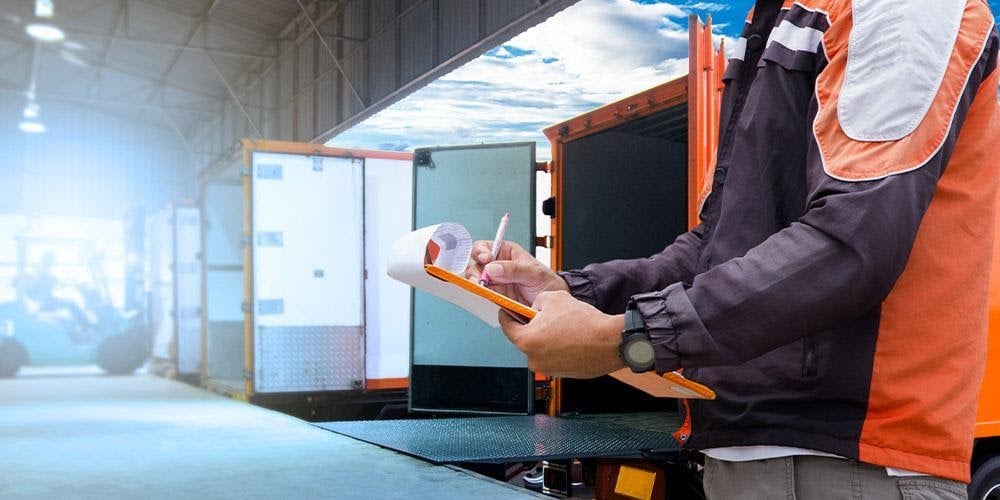
In the midst of the changes the logistics sector has had to implement to adapt its processes to the new circumstances, the number of companies who are starting to envisage and materialize actions to improve the environment is growing extensively.
A remarkable example is the automotive industry with the production of electric cars, towards making ecological sustainability a priority in the days to come.
In 2020, around 3.4 million new cars were sold in the United States, with electric cars accounting for only 2%. Despite such a small share, trends indicate this number will increase in the upcoming years as a result of market demand and the needs of manufacturers to transform themselves into sustainable companies.
As a Latin American example, patenting hybrid or electric vehicles in Argentina increased by 53.9% in 2020, being Toyota and Ford the companies that sold the most with regards to this type of cars.
Likewise, Tesla sold thousands of electric vehicles in the same year, which makes it more than clear this is one of the major advances in technological sustainability although other companies are still developing their own processes to catch up.
On this note, Volvo recently declared that from 2030, all its cars would be electric while General Motors disclosed its plans to reduce the carbon footprint towards 2040: to decarbonize its product portfolio with the use of electric batteries and technologies producing clean energy.
Some of the upsides of electric motors in ecological sustainability are the following:
1. Fewer components
From a mechanical standpoint, the performance of an electric vehicle is simpler as it engages fewer components. Unlike a gas vehicle, its parts are basically a motor, a charging port, batteries, transformers and controllers.
2. Saving fuel
Doing without diesel and gasoline, users can forget about spending on fuel to fill up their tanks. On the other hand, in an effort to benefit the economy and technological sustainability, the development of motors compatible with renewable, wind or solar power sources is underway.
3. High performance
Electric motors transform 90% of the energy they use in clean mechanical energy with no repercussions for the environment. Their constant power provides balance and stability while driving, which poses a special advantage in distribution logistics activities.
On the other hand, they are well-known for offering good power at high and low revolutions, being able to generate their own power thanks to associated technologies like regenerative brakes that can recharge the battery when they’re applied.
4. Longer service life
An electric vehicle can run double the number of kilometers than a traditional car, a quality that makes these models a more than interesting choice, not only for personal use, but for the shipping industry to transition to green logistics.
5. Cutting pollutant emissions
It’s true that electric automobile production generates around 60% of CO2 more than gas car assembling, however, once electric models are in use, they generate much fewer greenhouse gases.
It is calculated that a gas car produces between 120 g/km of CO2 emissions during its driving cycle whereas an electric vehicle may produce between 0 g/km and 109 g/km, depending on variables such as the source to obtain power, and where these cars are manufactured.
Such a major feature makes electric motors a good option when seeking to set a green logistics strategy in motion.
6. Decreasing noise pollution
Compared to internal combustion engines, electric models do not make noise, which is another upside to take into account in big urban centers and in routes where distribution logistics generates heavier traffic.
What’s more, the automotive industry is actually one of many examples. Today, organizations of different sectors are analyzing the way to adapt their processes, services and products to environmental needs and to the demands of an increasingly conscious market.
In addition, the efforts of businesses that are on the brink of becoming sustainable companies are translated into actions that range from changing their products’ packaging to enhancing transportation and logistics processes.
Through our Akzent Zero program we are aiming to mitigate environmental impact in logistics processes, generating carbon-neutral chains.
We know that taking sustainable actions isn’t only one sector’s job. With this initiative, Akzent has intended to be part of the change and give other companies the opportunity to join.
In partnership with GreenPrint Holdings, Inc., we’re investing in a broad portfolio of environmental projects accredited by various authorities worldwide, and do so because Akzent connects every move using a sustainable logistics approach.
Related
NEXT POST
Logistics and Exports in GDP 2020-2021










